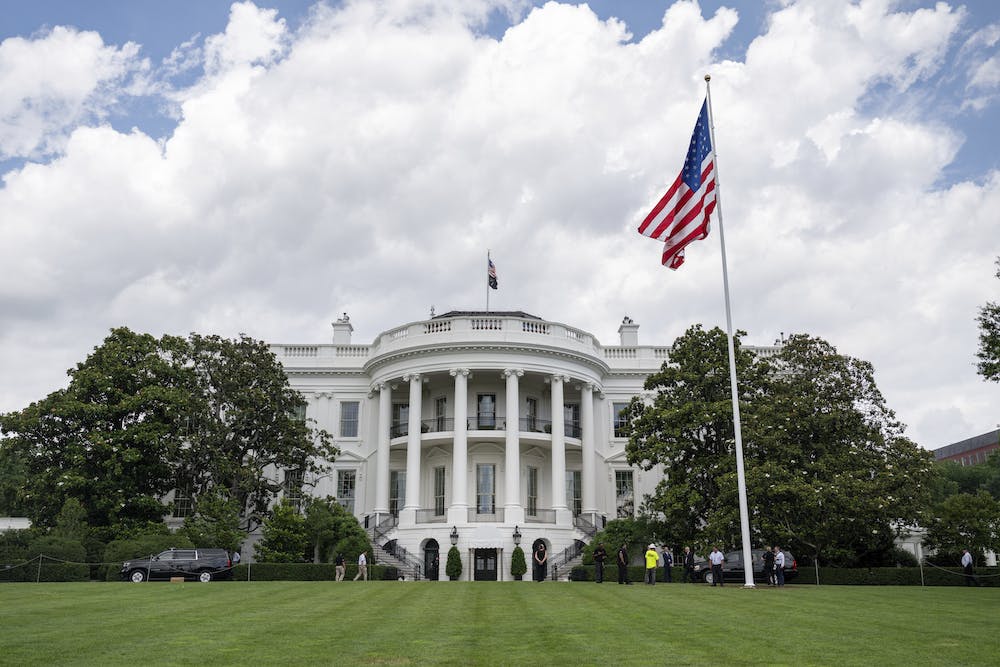Army’s New Information Warfare Units to Launch in 2026
Army Cyber Command’s Theater Information Advantage Detachments will bolster information advantage against threats from Russia and China.

The Army will deploy next fiscal year its new Theater Information Advantage Detachments (TIADs), which would track information warfare around adversaries like China and Russia as part of the service’s structure redesign plan released earlier this year, Army Cyber Command (ARCYBER) officials said this week.
“The information dimension is becoming increasingly important in modern warfare,” Lt. Gen. Maria Barrett, commander of ARCYBER, said Monday during AUSA’s Annual Meeting and Exposition in Washington, D.C. “These new units will provide commanders with the tools and capabilities they need to operate effectively in a contested information environment.”
Staffing the TIADs will include Army specialists comprising psychological operations staff, civil affairs specialists and cyberspace experts. TIADs will also have access to advanced data analytics, machine learning and other emerging technologies to quickly analyze large amounts of data and identify patterns that may indicate malicious activity, said ARCYBER Science Advisor and Chief Analytics Officer Al Mollenkopf.
“The data we collect is a critical asset,” said Mollenkopf. “By using AI and automation, we can analyze this data more effectively and identify potential threats. … AI and automation together can help us to see trends in data that is very difficult for us to see at the current scale.”
What Are the Army’s New Information Warfare Units?
The units are part of the Army’s modernization plan over the next decade that would future-proof the service for evolving threats in cyberspace. Officials said at AUSA this week they expect to launch operations for the TIADs in fiscal year 2026.
The new unit type will monitor information warfare across the world to counter adversarial efforts on the field level and will work closely with other components of the Joint Force and with international partners, added ARCYBER Director for Information Warfare Aaron Pearce.
“The proposition here is that these standing cross-functional teams will live in that environment day in, day out,” said Pearce. “[The TIADs will] provide their commanders opportunities to create information effects and to protect against adversary information warfare effects in competition.”
The Army will set up three TIAD detachments. Two will be regional — one each in Europe and the Pacific, according to Barrett. The third will be an interterritorial detachment for the Army Cyber Command. Cyber adversaries can operate outside of specific regions, as the domain is not geographic, Pearce said.
“My proposition to you is that like cyberspace, information is inherently trans-regional information and information effects,” said Pearce. “You have to be prepared to follow those adversaries wherever they go in the information space.”
TIADs are a significant step forward in the ARCYBER’s efforts to combat the evolving threat of information warfare. Emerging technology like AI and deepfakes can disrupt the information ecosystem and threaten American interests, Pearce added.
“The threat of deepfakes and other forms of synthetic media is a serious concern,” said Pearce. “We must be able to identify and counter these threats before they can cause significant harm.”
Echoing a threat briefing, Barrett noted the type of dangers the units are focused on.
“We’ve got cyber mission forces actively working to ensure that foreign line interests do not impede our elections, both in cyberspace and in the information dimension,” said Barrett. “We have two nation-state adversaries, at least, with information as part of their doctrine to fight adversaries.”
This is a carousel with manually rotating slides. Use Next and Previous buttons to navigate or jump to a slide with the slide dots
-

Pentagon Leaders Must Give ‘Top Cover’ for Risk-Taking, DOW Official Says
Bonnie Evangelista says acquisition reform will fail without leadership support that allows for experimentation without penalty.
3m read -

Digital GI Bill Automation Speeds VA Benefits Delivery
VA officials said Digital GI Bill upgrades have improved claims speed, enabling the department to process benefits with fewer staff.
3m read -

Who’s in Charge of AI at Every Federal Agency
New AI memos from the Trump administration prompt federal agencies to establish chief AI officers and OMB to launch a new CAIO AI Council.
7m read -

Federal CIO: ‘The Shackles are Off’ for AI Innovation in Government
Federal CIO Gregory Barbaccia said the PMA encourages faster tech adoption, AI experimentation and simpler digital services for citizens.
3m read







